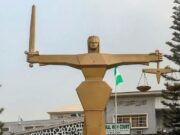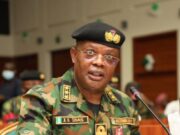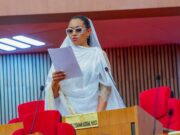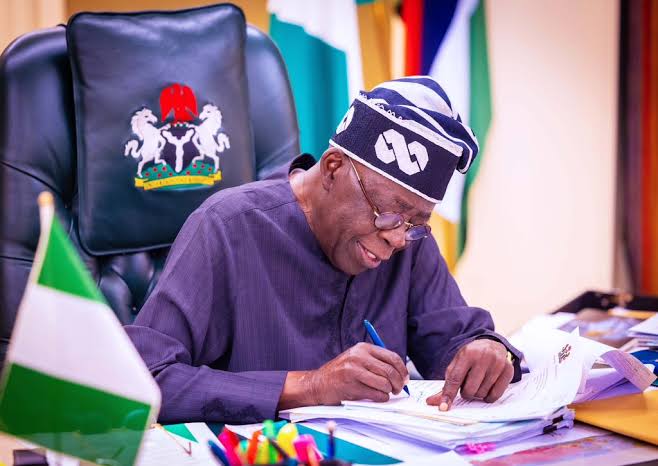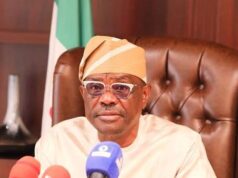President Bola Ahmed Tinubu has confirmed that media organizations in Nigeria can now access funding from the Bank of Industry (BoI) at a single-digit interest rate to help expand their operations.
Speaking at the 2024 All Nigerian Editors Conference in Yenagoa, Bayelsa State, Tinubu emphasized that the media would not be excluded from his administration’s economic support programs under the “Renewed Hope Agenda.”
The President, represented by the Minister of Information and National Orientation, Mohammed Idris, noted that the media’s role in Nigeria’s democracy over the past 25 years has been instrumental, and his administration would continue to support their growth.
“The media is not left out of the Renewed Hope Agenda. You now have the opportunity to access loans from the Bank of Industry at a single-digit interest rate for the development and expansion of your businesses.” He said
Idris had earlier encouraged media organizations to prepare bankable proposals to qualify for the loans, which he announced in May.
The editors’ conference, with the theme “Economic Growth and Development Strategies in a Resource-Rich Country,” was chaired by Nduka Obaigbena, the Chairman/Editor-in-Chief of ThisDay.
The event was attended by prominent journalists, including Vanguard Publisher Sam Amuka-Pemu and former Ogun State Governor Olusegun Osoba.
In his speech, President Tinubu highlighted several reforms his administration has implemented, such as the removal of the petrol subsidy, and praised the media for its contributions to nation-building.
He acknowledged that the uninterrupted democracy Nigerians enjoy today is largely due to the work of the media, particularly those who fought during the pro-democracy struggles.
“I salute the efforts of veteran journalists in this room who helped bring about Nigeria’s enduring democracy. Your contributions remain invaluable, and as we celebrate 25 years of democracy, we recognize the media’s key role in making this possible,” Tinubu stated.
He emphasized the symbiotic relationship between the media and the government, stressing the importance of accountability and mutual respect.
“In any thriving democracy, the roles of government and the media are intertwined. Both are essential in serving the public interest,” he added.
“The media must hold us accountable, and we must work together to strengthen democracy and build a more transparent and resilient society.”
On Nigeria’s economic reforms, Tinubu noted that the country’s debt-to-revenue ratio had dropped significantly from 100% to 65%, marking a positive turnaround for the economy.
He also pointed to efforts to diversify Nigeria’s revenue sources, including the administration’s initiative to use Compressed Natural Gas (CNG) to reduce transportation costs by about 60%.
Bayelsa State Governor, Douye Diri, who also attended the conference, praised the media for its crucial role in democratic governance.
He described the media as the “fourth pillar of democracy,” which educates, informs, and entertains the public, shaping national discourse.
Diri also raised concerns about environmental challenges and economic hardships faced by Bayelsa, a major oil and gas-producing state.
He called for a rethinking of the outdated idea that states have rights to surface land, while the federal government controls valuable underground resources.
During the conference, ThisDay Publisher, Nduka Obaigbena urged editors to support the economic reforms of the Tinubu administration, emphasizing that the future of Nigeria could improve if the media provided the necessary backing to the government’s initiatives.
Veteran journalist, Sam Amuka-Pemu expressed concerns about the impact of the fuel subsidy removal on the media industry, particularly on newspaper sales.
He explained that rising transportation costs were straining the industry’s finances and that advertising revenue, a crucial source of income, had significantly dwindled.
Amuka warned that without intervention, the newspaper industry could face extinction.
Another veteran journalist, Chief Olusegun Osoba, called on editors to resolve the ongoing leadership crisis in the Nigerian Union of Journalists (NUJ), which has prevented the union from holding elections for the past two years.



